
People do bank card procedures at the 2025 Cashless Festival - Photo: QUANG DINH
From the perspective of policy to business practices and consumer behavior, management agencies are implementing many synchronous solutions to both develop digital payment infrastructure and protect consumers in the new transaction environment.
These are the key messages from the workshop "Cashless Payment: Driving Force for Digital Economic Growth" held on June 14 in Ho Chi Minh City.
The event is part of the Cashless Day 20250 program initiated by Tuoi Tre newspaper since 2019, in coordination with the Payment Department, Banking Times - State Bank, Ho Chi Minh City Department of Industry and Trade, Vietnam National Payment Joint Stock Company (NAPAS) organized under the direction of the State Bank and Ho Chi Minh City People's Committee.
Vietnam is in the world's top for digital payments.
In the first quarter of 2025, Vietnamese people will make 5.5 billion cashless transactions, of which 4.5 billion will be digital transactions. Vietnam's average transaction per capita has approached that of Thailand and India and is close to catching up with China.
However, Mr. Nguyen Hung Nguyen - Deputy General Director of NAPAS - said that in reality, account-to-account payments are among the top, around 5th - 7th in the world thanks to the new digital lifestyle of Vietnamese people.
"We are witnessing changes, from paying for public services to traveling, shopping, paying tuition fees, hospital fees... all done in the digital environment, promoting the development of the digital economy, thereby creating momentum for the development of digital payments. The biggest task now is to optimize the consumer experience when using digital services," said Mr. Nguyen.
According to banking industry statistics, the country currently has more than 200 million bank accounts, about 1/5 of which regularly conduct digital transactions on all channels.
Vietnam's digital economy has grown strongly in recent years, with e-commerce contributing more than 60%. By 2024, this sector will reach 22 billion USD, of which 90% of transactions will be paid electronically, including QR codes, e-wallets, etc.
"In 2024, NAPAS will process 9.56 billion transactions, an increase of approximately 30% in the number of transactions and more than 14.4% in transaction value compared to 2023," Mr. Nguyen informed.
Regarding the impact of digital payments on the economy, Mr. Nguyen said that the benefits are very clear: helping with quick payments, reducing operating costs, contributing to transparency, optimizing cash flow when tracing in real time, supporting tax management...
Sharing at the workshop, Mr. Kim Dea Hong - Deputy General Director of Shinhan Bank Vietnam - said that Korea built a non-cash payment platform very early with mandatory identification in financial transactions since 1993 and popularized credit cards since 2000. However, up to now, the cash payment rate is still about 15.9%, showing that popularizing digital payments is still a challenge in developed countries.
In Vietnam, Mr. Kim highly appreciated fundamental policies such as biometric authentication in transactions and mandatory application of electronic invoices for businesses with revenue of 1 billion VND or more.
Drawing on South Korea’s experience, Mr. Kim said the country has gradually encouraged cashless payments by reducing income taxes for credit card users, then expanding to debit cards and mobile payments. For businesses, the Korean government also prioritizes financial support and tax incentives for those with a high rate of cashless transactions.

Delegates perform the opening ceremony of the Cashless Festival 2025 - Photo: QUANG DINH
Vietnamese people prefer cashless payments across borders
Sharing the report "Understanding consumer behavior in the digital economy era" at the workshop, Ms. Le Thi Thanh Binh - Southern region director of Coc Coc Company Limited - said that in the context of consumer behavior shifting strongly to the digital environment, cashless payment methods are increasingly developing and becoming more popular in Vietnam.
According to a survey by Coc Coc, cash is no longer the main payment method in daily life. Up to 59% of consumers prefer non-cash payments such as bank transfers, QR scanning, e-wallets...
Notably, Vietnamese people when going abroad do not completely depend on cash but flexibly use many payment methods. Only about 1/3 choose to use only cash in the destination country, while the majority prefer to combine using credit cards, e-wallets or local cashless methods.
Not only are consumers changing their spending habits, but according to Mr. Nguyen Nam Binh - Head of the Tax Department of Region 2, Ho Chi Minh City, businesses are also catching up with the cashless trend.
From June 1, according to Decree 70 of the Government, business households with revenue of 1 billion VND/year in six specified industries will have to issue electronic invoices from cash registers directly connected to tax authorities.
"The implementation of electronic invoices via cash registers in Ho Chi Minh City is receiving positive support from people and businesses," he said.
This not only contributes to transparency in business operations but also helps businesses access technology, manage revenue more easily, expand their customer base and integrate with the cashless payment ecosystem.
Mr. Binh commented that this is an important step in the comprehensive digital transformation roadmap of the economy, closely linking tax management, consumption and modern payments.
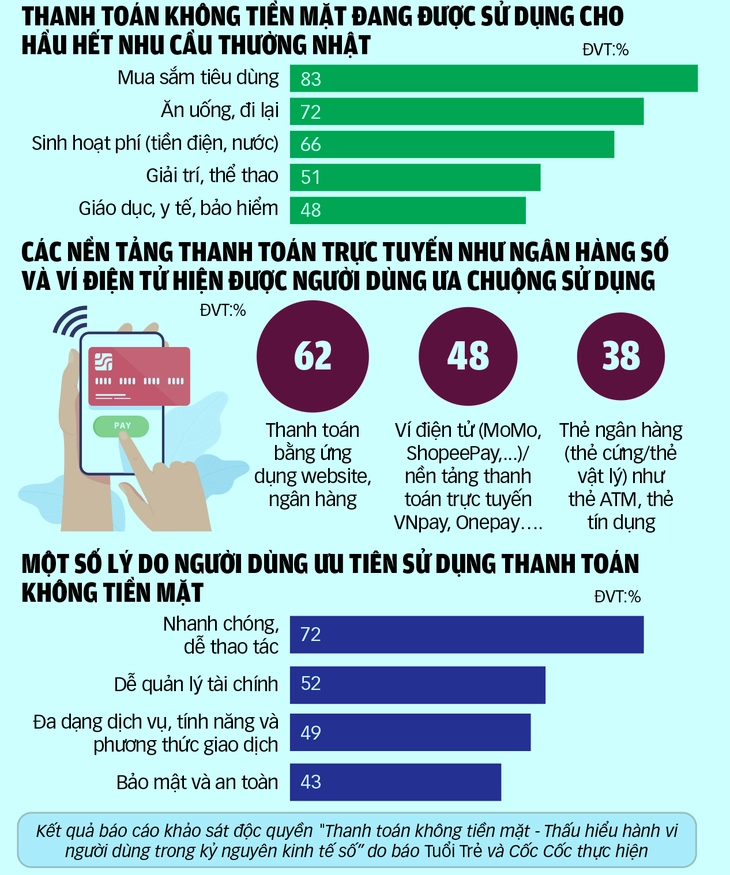
Source: Coc Coc survey results - Graphics: TUAN ANH
Promoting comprehensive cashless payments
Witnessing the development of cashless payments, Deputy Governor of the State Bank Pham Tien Dung recalled that from the early years when Governor of the State Bank Nguyen Thi Hong went to each stall of small traders to paste QR codes, to today when QR payments in particular and cashless payments in general have developed very strongly.
Currently, 87% of adults in Vietnam have bank accounts. In Ho Chi Minh City, this rate is even higher. The interbank electronic payment system currently processes an average of VND820,000 billion per day, while the financial switching and electronic clearing system processes 26 million transactions per day.
The national credit information infrastructure has been upgraded to increase the ability to process and update data automatically, while expanding the collection and updating of data inside and outside the industry with a successful data update rate from credit institutions reaching a high level of over 98%.
"Cashless payments are playing a key role in the development of the digital economy, contributing to improving transparency, promoting e-commerce and public services, under close coordination between the State Bank, the Ministry of Public Security, ministries, branches, localities and businesses," Mr. Pham Tien Dung emphasized.
E-commerce wants to break through and must reduce dependence on cash.
Ms. Le Hoang Oanh - Director of the Department of E-commerce and Digital Economy (Ministry of Industry and Trade) - said that digital payment is a core factor promoting the development of e-commerce and digital economy. However, currently up to 77.5% of consumers still choose to pay cash on delivery (COD), mainly due to habit, concerns about high-tech fraud, poor quality goods and unsynchronized digital infrastructure, especially in rural areas.
To overcome this situation, the Ministry of Industry and Trade has issued a national e-commerce development plan for the 2026 - 2030 period, with the goal that by 2030, 80% of e-commerce transactions will be paid without cash.
Some proposed key solutions include completing the legal framework, developing core technology infrastructure, ensuring safety and security, integrating digital payment infrastructure, supporting traditional market traders and deploying payment utilities on mobile devices.
Deputy Minister of Industry and Trade Phan Thi Thang said that it is necessary to have a program to promote cashless payments suitable to the characteristics of each locality, along with incentive packages, training and technical support for small businesses, traders and traditional markets.
"With the participation of all levels of government, businesses and people, Vietnam can absolutely rise to the top in the digital economy in the region," Ms. Thang believes.
Source: https://tuoitre.vn/tang-toc-thanh-toan-khong-tien-mat-bao-mat-di-truoc-20250615082855779.htm


![[Photo] Editor-in-Chief of Nhan Dan Newspaper Le Quoc Minh received the working delegation of Pasaxon Newspaper](https://vphoto.vietnam.vn/thumb/1200x675/vietnam/resource/IMAGE/2025/9/23/da79369d8d2849318c3fe8e792f4ce16)
![[Photo] Prime Minister Pham Minh Chinh chairs the 14th meeting of the Steering Committee on IUU](https://vphoto.vietnam.vn/thumb/1200x675/vietnam/resource/IMAGE/2025/9/23/a5244e94b6dd49b3b52bbb92201c6986)
![[Photo] General Secretary To Lam meets voters in Hanoi city](https://vphoto.vietnam.vn/thumb/1200x675/vietnam/resource/IMAGE/2025/9/23/d3d496df306d42528b1efa01c19b9c1f)
![[Photo] The 1st Congress of Party Delegates of Central Party Agencies, term 2025-2030, held a preparatory session.](https://vphoto.vietnam.vn/thumb/1200x675/vietnam/resource/IMAGE/2025/9/23/e3a8d2fea79943178d836016d81b4981)





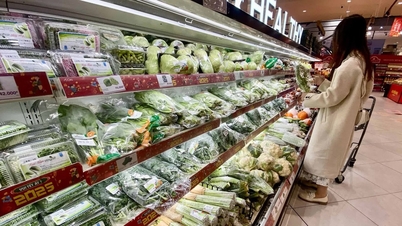








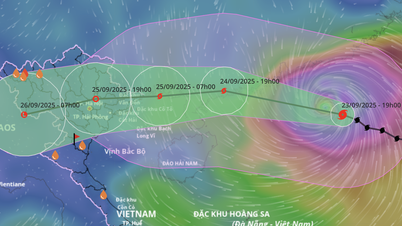






































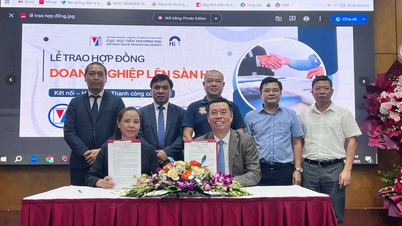


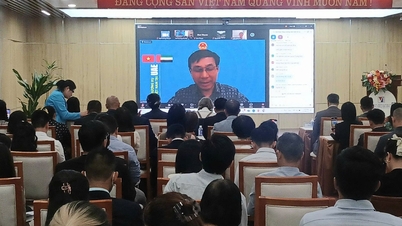

























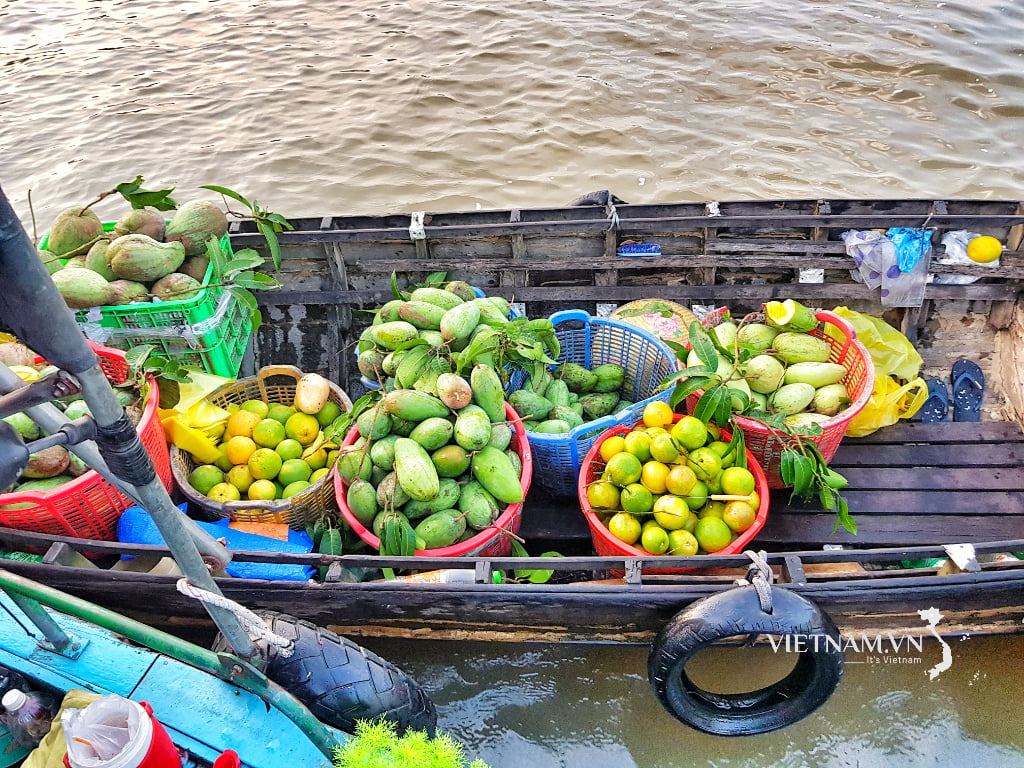


Comment (0)